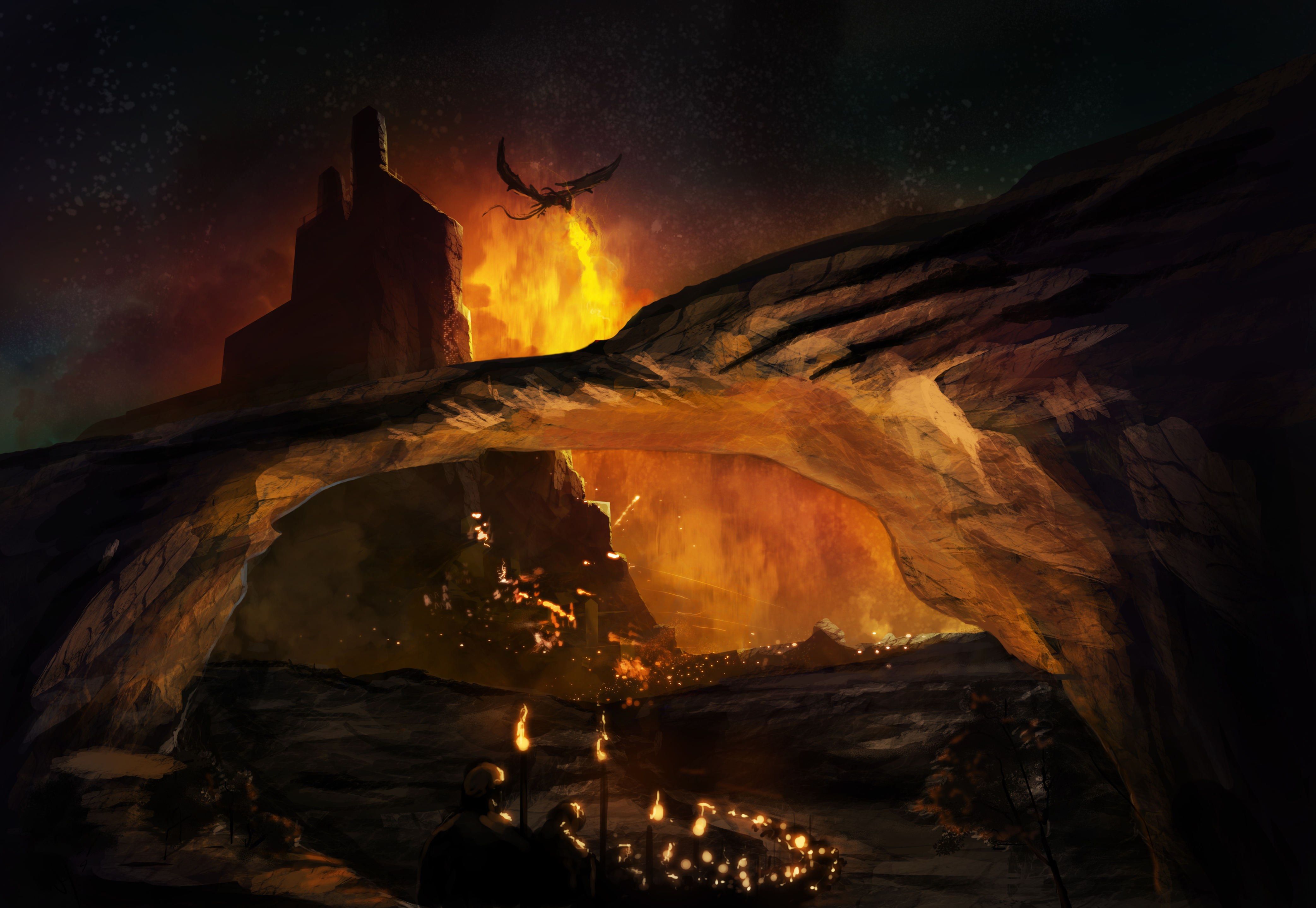Antagonists are the characters in a story that opposes the hero of the tale.
They are in the story to create conflict and build up tension within the story as you never know what they are really up to. They can be antiheroes like Mesham from The Torcian Chronicles, who reluctantly agrees to attempt to save his country from the Mivirian invaders. His only other choice being certain death coming from either country…
‘Warlock Mesham … We command you, open in the name of His Royal Highness, King Athemar!’ shouted the menacing voice.
The warlock wrinkled his nose, cross at being disturbed once more and stiffly eased himself from his armchair, knowing the dire implications of disobeying his king. Warily, he unlocked the door and was abruptly thrown against the wall, as two huge Royal Guards dressed in black body armour emblazoned with the gold royal dragon strode through the doorway. Ignoring, the dishevelled warlock they took up position by the dust covered windows. Two more guards filled the doorway, towering over a little man resplendent in a blue silk robe.
Two dark brown eyes stared sharply at the warlock.
The Warlock bowed stiffly and King Athemar entered the hovel.
Suddenly, the whole room, blazed white with a blinding flash of lightning. King Athemar caught completely unawares by the sudden strike jumped and screamed in terror. The Royal Guards stood firm at their posts, their faces a stern mask of unswerving loyalty and devotion. The warlock’s eyebrows rose, and the corner of his mouth twitched but he continued to look firmly at the floor in front of Athemar’s feet.’ The Torcian Chronicles, P.J. Reed
Antiheroes can be characters who did not fit into the traditional heroic role of good-looking, honest, law abiding citizens. Such as the womanising, slightly criminal Star Lord versus the perfection of Thor in the Marvel comics. It is the human flaws in our antiheroes and the fact their actions prove their noble intent in the end, that endear them to readers and cinema goers alike. For as fellow flawed human beings we can relate to their problems and behaviours.
One great example of a flawed hero is Peregrin Took.
‘Fool of a Took!” he growled. “This is a serious journey, not a hobbit walking-party. Throw yourself in next time, and then you will be no further nuisance.’ The Lord of The Rings, J.R.R. Tolkien
Clumsy people, myself included, can easily identify with poor Pippin, when he accidentally knocks the rock into the well causing the orc drums of Moria to sound.
However, some characters are so bad they have no endearing qualities for us to relate too.
In Stephen King’s It, Pennywise the dancing clown is bad. Hopefully, he possesses no behaviours we can relate to and yet he triggered a menacing clown epidemic in 2016. It was his abnormal wickedness which people could not understand. This aberrant behaviour fascinated people and created his huge fanbase, as they tried to understand the reasons behind his actions.
The truly wicked villains allow people to experience all the emotions of being chased by the psychotic or the wickedly supernatural and the corresponding adrenalin high but in a safe environment. They provide a conduit for the basest feelings such as fear, lust and anger. This release of adrenalin can ease symptoms of anxiety. It gives stress and feelings of nervousness a safety valve. Watching a villain rampage is a way to escape the fears of real life. You know you are in a safe environment and that what you are see is not real, but your adrenalin responses are very real.
So, fictional villains are good for your health.
Even the worst villains can also provide us with a guilty pleasure.
Normal people are brought up to socialize effectively, to act with a moral conscience, and to respect societies laws. However, the literary villain offers a window on a life completely free of these restraints, and they are fascinating to watch from a distance, behind the safety of a television screen, a book, or the cinema. Their world is so alien to us that we want to understand and explore the perpetrator of such heinous crimes and the reasons behind their psychopathy. We want to know why serial killers perform acts which are outside the realms of normality. It is the shocking nature of their crime which enthrals the onlooker as we search for answers. For example, why did Hannibal Lector develop a taste for human flesh? And what drove Professor Moriarty, a mathematical genius, to become a criminal? Was it just as Holmes states,
‘The man had hereditary tendencies of the most diabolical kind. A criminal strain ran in his blood, which, instead of being modified, was increased and rendered infinitely more dangerous by his extraordinary mental powers.’ The Final Problem, Arthur Conan Doyle.
or was there something more which triggered his descent into criminality?
It is these unanswerable questions which make literary villains so much fun to observe and dissect from a safe distance.
Therefore, enjoy your villains but do not copy them!
by P.J. Reed author of The Torcian Chronicles

Leave a Reply